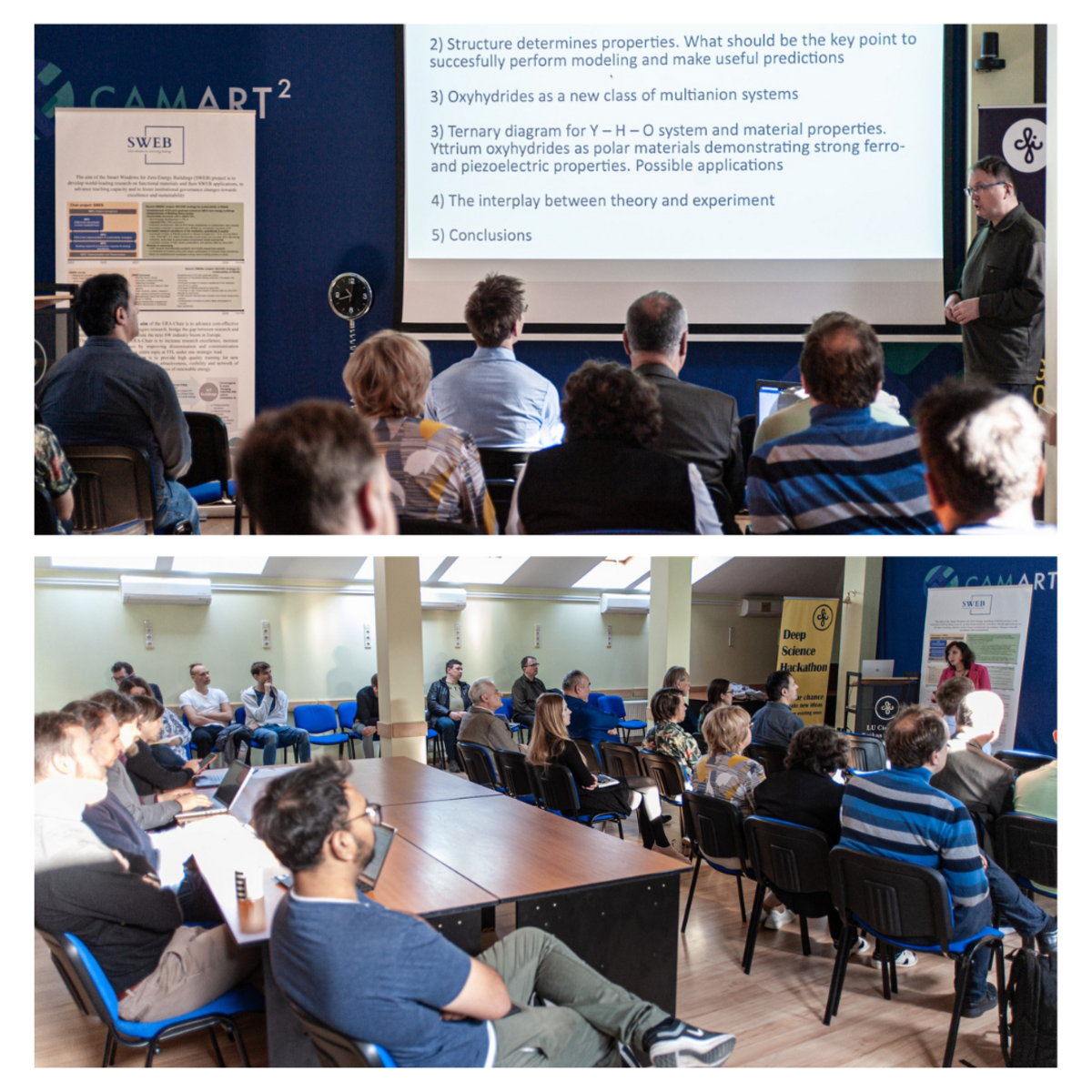
On the 27th of September 2023 the Smart Windows for Zero Emission Buildings (SWEB) project reaffirmed its commitment to fostering research and innovation by organizing a seminar session aimed at strengthening the human capital base in Research and Innovation for widening countries. The event featured two distinguished invited lecturers and engaged over 30 participants, including PhD students from the Institute of Solid State Physics, University of Latvia (ISSP UL).
The interactive seminar began with a captivating lecture by Dr. Aleksandr Liivand from Tartu University, who delved into the topic of "Crystal-chemical modeling of inorganic systems with more than one anion." This insightful presentation laid the foundation for a robust discussion on state-of-the-art modelling strategies in materials theory to establish the chemistry process-structure-properties correlations at the atomic scale, based on the close relationship between charge localization, bonding and structure.
Dr. Esra Zayim, representing Istanbul Technical University, followed with her lecture on "Multifunctional hybrid coatings for advanced material Applications”. As an example, Dr.Esta Zayim shared her research group’s efforts in simulation and modeling of Intraocular Lenses (IOLs), with the objective of improving visual outcomes and enhancing the comfort of individuals undergoing cataract surgery Her expertise in this area provided valuable insights into the potential applications of advanced materials, sparking lively discussions among the seminar participants.
The seminar concluded with an engaging Q&A session, where participants had the opportunity to seek clarification and dive deeper into the subjects presented. The discussions revolved around identifying the most promising research pathways and addressing industry needs.
Following the seminar, a roundtable discussion was held with the lead researchers from the ISSP UL Thin Film Laboratory led by Prof. Dr.Juris Purans. The focus of this discussion was to enhance the quality and capacity of research and innovation, which contributes to Europe's competitiveness and growth. Key topics included the development of new chromogenic materials and devices, the establishment of scalable and cost-effective deposition methods, and the formulation of stability testing protocols for photochromic and thermochromic films.
The SWEB project remains dedicated to advancing research and innovation, fostering collaboration, and building a strong foundation for the future of multifunctional coatings and their diverse applications in sustainable technologies.